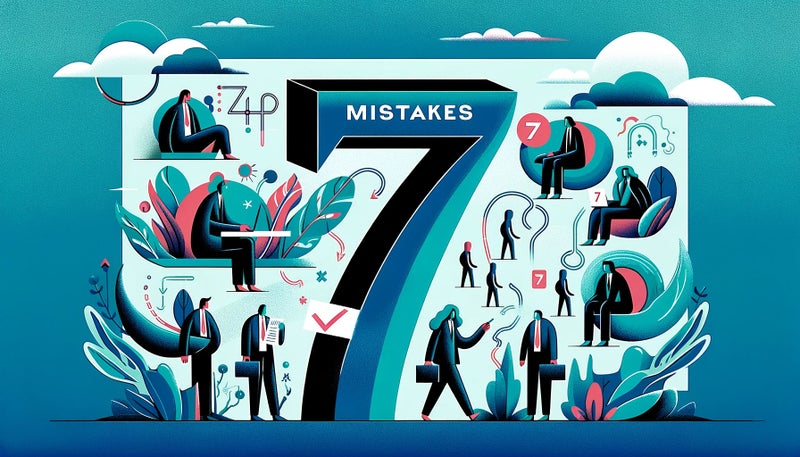Contents
- Trap #1: The Resume Rut
- Trap #2: The Interview Illusion
- Trap #3: The Communication Catastrophe
- Trap #4: The Remote Skills Riddle
- Trap #5: The Cost-Cutting Conundrum
- Trap #6: The Unclear Expectations Enigma
- Trap #7: The Outdated Tools Oasis
Are there common mistakes hiring managers should avoid? The answer is yes! Sidestepping just a few of these pitfalls can turn your remote recruitment process into a smooth, talent-magnet machine.
So, grab your machete (metaphorically speaking), because we're about to hack our way through the 7 biggest mistakes you can make in the wild world of remote hiring.
Why does it even matter? Well, with 62% of workers already working remotely some of the time and 59% who prefer companies who hire remotely, mastering this skill is smart.
Studies show that remote work can slash absenteeism by half, meaning happy, productive teams are just a good hire away.
But wait, before you get stuck in resume ruin, let's make sure you're not falling into these sneaky traps!
Trap #1: The Resume Rut
Burn the boring CVs! They're like faded maps, leading you in decision quicksand. Instead, embrace modern tools like CCAT tests, skills-based tests and work samples to get a real-life picture of what candidates can do.
Trap #2: The Interview Illusion
Not everyone shines under interview spotlights, especially developers.
Some rockstars might freeze up. Use pre-hiring tests and simulations to assess skills more effectively, and give quieter candidates a chance to shine.
Trap #3: The Communication Catastrophe
Leave candidates hanging in the dark, and they'll disappear faster than a free donut.
Clearly outline the hiring process in your job descriptions. If you don’t provide feedback, say so.
Show them you're serious about remote work, and they'll be lining up to join your team. These communication mistakes hiring managers should avoid as much as possible.
Trap #4: The Remote Skills Riddle
Remote work requires a special skill set.
Think time zone ninja, online communication guru, and collaboration tool whiz. Think of someone who can focus deeply for hours at a time. Make sure your candidates have these superpowers before bringing them on board.
Trap #5: The Cost-Cutting Conundrum
It’s true, remote work can save you bucks, but that shouldn't be the only reason you do it. Outsourcing can be extremely problematic if cost is your only motivation.
Hiring remotely opens up a global talent pool and boosts employee happiness, leading to better work and a healthier work-life balance for everyone.
Trap #6: The Unclear Expectations Enigma
Be crystal clear about work hours, communication tools, and productivity expectations. Vague policies lead to confused and frustrated employees who might disappear faster than a free latte. You can easily manage expectations with tools like productivity trackers.
Trap #7: The Outdated Tools Oasis
Release your tiny army of interns reading thousands of resumes!
Embrace tools designed for remote hiring instead. AI platforms that allow you to set parameters for who you’re looking for are faster, easier and result in perfect-match hires. Why use anything else?
By dodging these traps, you'll transform your remote hiring process into a talent magnet. You'll attract top performers, boost productivity, and build a remote team that's engaged, satisfied, and ready to conquer the world (or at least their to-do lists).
Potential candidates and team members who crush the interview process will become your focus.
Once skills and experience have been vetted and the interview questions answered, you'll be clear on who deserves the job offer for the open position.
Remote hiring isn't just about filling a position, it's about building a strong, adaptable, and united remote workforce.
Now that you know which mistakes hiring managers should avoid, you’re better equipped to hire remotely in 2024.







